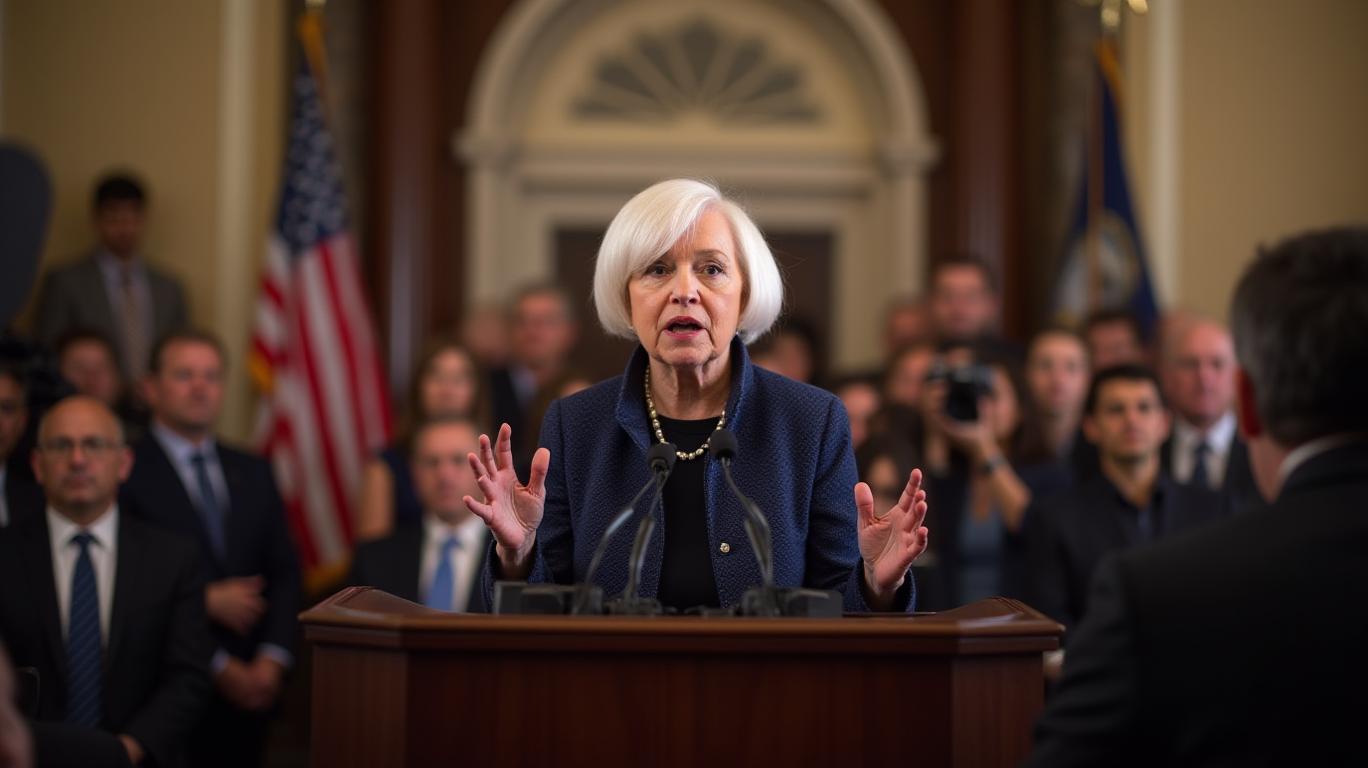U.S. Treasury Secretary Recognizes Bitcoin as Store of Value
U.S. Treasury Secretary Scott Bessent recently made a significant statement by acknowledging Bitcoin as an emerging store of value, comparing it to gold. This recognition marks a notable shift in the perspective of high-ranking U.S. officials towards digital assets, which have historically been met with skepticism by traditional financial institutionsFISI--.
Bessent highlighted the growing acceptance of Bitcoin's potential as a store of value, a characteristic traditionally associated with gold. This acknowledgment comes at a time when the global financial landscape is rapidly evolving, with digital currencies gaining traction among investors and institutions. The Treasury Secretary's remarks underscore the increasing legitimacy of Bitcoin as an asset class capable of preserving value over time.
The comparison between Bitcoin and gold is particularly significant. Gold has long been considered a safe haven asset, providing stability and security during times of economic uncertainty. By drawing parallels between the two, Bessent suggests that Bitcoin could offer similar benefits in a digital form. This perspective challenges the conventional view that digital currencies are volatile and unreliable, instead positioning them as viable alternatives to traditional stores of value.
Bessent's comments also emphasize the need to integrate Bitcoin into the mainstream financial system. He stressed the importance of "bringing Bitcoin onshore," indicating a requirement for regulatory frameworks that can accommodate the growing use of digital currencies. This call to action reflects a broader trend towards the institutionalization of cryptocurrencies, as governments and financial regulators worldwide grapple with the implications of this new asset class.
The Treasury Secretary's remarks are significant not only for their endorsement of Bitcoin but also for their potential impact on the broader financial ecosystem. As more high-ranking officials and institutions recognize the value of digital currencies, the path towards widespread adoption becomes clearer. This shift in perspective could pave the way for greater investment in cryptocurrencies, as well as the development of new financial products and services that leverage blockchain technology.
In response to the recent stability of Bitcoin despite broader market volatility, Bessent's optimistic comments come at a time when the cryptocurrency has shown resilience. Following significant market fluctuations, Bitcoin has remained stable around a key level, defying the negative trends observed in traditional markets. This stability has led to a reevaluation of Bitcoin's role as a potential hedge against market uncertainties.
Bessent's acknowledgment of Bitcoin as a store of value is particularly relevant in the context of recent market events. The Treasury Secretary's statement comes in response to Bitcoin's recent decoupling from traditional markets, highlighting its potential as an asset that can maintain value even during times of economic turmoil. This perspective is supported by the observation that Bitcoin has shown resilience in the face of market volatility, making it an attractive option for investors seeking to diversify their portfolios.
In summary, U.S. Treasury Secretary Scott Bessent's recognition of Bitcoin as a store of value represents a significant milestone in the evolution of digital currencies. By drawing comparisons between Bitcoin and gold, Bessent highlights the potential of cryptocurrencies to serve as reliable assets in an increasingly digital world. His call for regulatory integration underscores the need for a comprehensive approach to managing the risks and opportunities associated with this emerging asset class. As the financial landscape continues to evolve, the recognition of Bitcoin's value by high-ranking officials could accelerate its adoption and integration into the mainstream economy.

Quickly understand the history and background of various well-known coins
Latest Articles
Stay ahead of the market.
Get curated U.S. market news, insights and key dates delivered to your inbox.



Comments
No comments yet